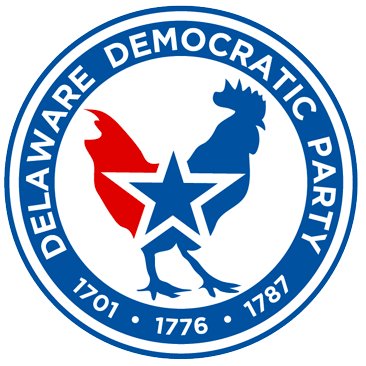With the ghost of Woodrow Wilson hovering over them, Delaware Democrats put their heads down and charged ahead. They did what they do every year, a First State ritual that “has never failed”: they took a hastily concocted bill slapped together by a secretive cabal of corporate attorneys and turned it into law.
Did Dems just kill Delaware’s cash cow, as Wilson did to New Jersey’s more than a century ago?
Grab your assets because we’re about to find out.
Eric Talley of Columbia Law School is one of dozens of legal scholars who urged the General Assembly to slow consideration of the recently (and rapidly) enacted changes to Delaware’s corporate code.
“Perhaps ironically, now that the bill has been passed and signed, the academic researcher side of me is incredibly excited,” Talley told Delaware Call via email. “Scholars in my area are always on the lookout for empirical data to test theories of corporate governance, and the best kind of data comes from random (and even hasty) experimentation. That’s usually a problem, because it’s extremely hard to convince legislators and regulators to engage in such random rule making: government officials typically shy away from randomization just for the ‘interest of science.’
“This is what makes new section 122(18) exciting to academic researchers,” he continued. “It’s a grand (and pretty risky) field experiment that’s being applied to all Delaware-incorporated companies. Whether it proves to be a boon or a disaster for the Delaware franchise, it is sure to create a treasure trove of data for empirically minded academics like myself, specifically because of what many view as its incautious and rushed progression into law.”
Section 122(18) is one of this year’s updates to the Delaware General Corporation Law. It legalizes sweetheart deals that give powerful shareholders extra rights and privileges to wield over the rest of us. These side agreements, which have proliferated in corporate America over the past decade or so, were found to be illegal in a Court of Chancery ruling this year. That set off a frothy rush to rewrite the rules, retroactively legalizing the deals so bigwigs can enjoy — without interruption — the slavish obeisance to which they have become accustomed.
Companies can make these deals without their other shareholders having a chance to vote on them, prompting a slew of objections to the bill from labor union pension funds and small investors, whom legislators from both parties ignored. Moreover, even if shareholders vote to expel directors who approve such side deals, new board members are still bound by the onerous agreements, critics say.
Sen. Bryan Townsend (D, Newark-Bear), the bill’s primary sponsor, recently defended it, arguing that “these kinds of stockholder agreements already are permitted through multiple other mechanisms, and we have not seen evidence of abuse.” At any rate, “these agreements still would be subject to fiduciary duties (of board members) and Court of Chancery review,” he said.
Rep. Krista Griffith (D, north Wilmington-Greenville), another sponsor, argued during a recent House debate that corporate directors will need to consider the interests of ordinary shareholders when evaluating proposed side deals.
“Fiduciary duties trump contracts, always,” she said. “There is nothing in this legislation that changes that.”
Still, Rep. Madinah Wilson-Anton (D, south Newark-Bear-Christiana), one of the few Democrats to vote against the measure, called the rushed legislative process “an embarrassment for Democrats.” During the House debate, she was blocked from quizzing a pro-bill witness about the presumably lucrative income he garners from those likely to benefit.
A few commenters, including Dael Norwood, a historian from Newark, warned legislators not to repeat the folly of Woodrow Wilson, who as governor of New Jersey (about to move to the White House) hastily and ineptly tightened that state’s restrictions on corporate governance. His historic blunder drove New Jersey’s then-thriving incorporation franchise into the eager embrace of neighboring Delaware, where officials were (and apparently still are) only too willing to give monied fatcats everything they demand.
According to Norwood, this new law damages the reputation of the Court of Chancery, whose expertise in business cases is one of the key draws for companies to incorporate in Delaware.
“In overruling a Chancery decision so hastily, and by doing so with repeated and direct insults to the court’s jurists, the bill’s real authors and their allies in the legislature have shouted to the world that the court’s rulings do not matter, and that the expertise of the people employed there has little value,” Norwood said via email.
“I think it has precipitated a crisis of legitimacy that could make it very difficult for Delaware to keep earning revenue as a venue for business entity formation, going forward,” Norwood added. “As I emphasized in my public testimony, Delaware has ‘the Franchise’ only because of an accident of history — New Jersey fumbled the bag in 1913 — and it does not take much to lose that advantage.”
In fairness, our elected representatives appear to have studied Wilson’s folly diligently. Far from tightening rules, the new law makes Delaware’s corporate oversight regime even more lax. How this aligns with the Democratic Party’s other priorities, in a state where it controls the legislature and the governorship, is an absurdity Dems try to duck.
Is this really the beginning of the end for Delaware’s $3 billion in annual revenue from The Franchise?
We at Delaware Call don’t know. In the meantime, we plan to enjoy tax-free shopping while we can.

